Introduction
One of the problems with which not only European but Western liberal democracy is struggling today is the problem of knowledge and its relation to politics. The relationship between science and democracy has become unclear. At the same time, it aroused the interest of many researchers.[1] The pandemic and the reactions of both the authorities and citizens particularly evidenced this to further expert opinions and restrictions. The problem of the covid-19 pandemic allows raising a few questions with all severity. The problem has arisen before, but the pandemic has shown that distrust of knowledge can be one of the main expressions of Europe's spiritual crisis. Among the questions posed were also the question about the relation of expert knowledge to democratic politics, the question about the relation of knowledge to freedom, and the problem of trust.[2]
The political sphere is determined by the human ability to act, it is based on the phenomenon of freedom. And freedom is possible to a certain extent. The operating conditions are determined by the knowledge that is formulated by experts and precedes the policy, indicating what is possible. For the sake of simplicity, knowledge will be treated here as a simple relation to reality that results in its description. Knowledge defined in this way indicates spheres of activity. Meanwhile, contemporary politics indicate problems related to expertise. One form of such a problem is the substitution of policy by expertise. The area of freedom then disappears, and the politicians are replaced by experts. Another perversion of democratic politics is the rejection of knowledge and problematic responses to expertise, with citizens' denial of science and a shift towards ideologization of politics and toward populism.
The Relationship of Politics and Expertise shows the deep spiritual crisis of the Western world. It leads either to the negation of the very freedom inherent in the principles of democratic politics or to the negation of science. In the simplest terms, the two extreme positions can be presented as an elitist technocracy struggling with democratic populism. This brings us to the question; would we be inclined to take the side of an elitist technocracy or a democratic populism?
The thesis of the text is that the question itself was incorrectly posed and that the ideal of expert knowledge emerging from the Enlightenment project should be supplemented. Contemporary development of specialized and narrow knowledge, which, being a source of expertise, does not determine the content of political decisions but requires supplementing with a broad context of knowledge. Such knowledge would at least be useful in attempts to predict the consequences of the decision.
In the first part of the text, the program of the Enlightenment will be analysed along with its idea of knowledge and the public sphere, which is also a sphere of freedom. In the Enlightenment program, knowledge was to constitute a coherent structure that coherently combines elements of science from various fields, contributing to the creation of a logical and comprehensive structure. This picture of science was at the same time related to the model of freedom, which should be practised on an individual level and politically protected.
In the second part, cognitive limitations will be analysed, which have been identified and, as it turns out, hinder the full implementation of the enlightenment program. The burdens of judgments mean that experts, even when speaking in good faith, do not always agree on the formulated opinions. Moreover, the narrow scope of their expert competencies draws attention.
The third part will show the limitations of modern expert knowledge itself. Knowledge has become narrow and specialized at the same time the public become dependent on trust in experts and scientific institutions. The idea of personalized knowledge shows precisely the problem of trust. The Enlightenment believed that our understanding of the world should be based on reason, while now it is based on trust. Hence the fragility of the relationship between scientists and the public.
In the fourth part, the determinants of the relations between politics and expertise will be indicated, from the Enlightenment project to contemporary reinterpretations. Modern science has turned out to be entangled in the global economy, which often undermines trust. It results in the threat of the ideologization of science.
At the end, some conclusions will be formulated related to ideologization and the increase in populist sentiment because of a lack of knowledge. Postulates related to changing the model of education will also be presented, which should take two dimensions as the basis: the currently dominant training of competencies related to the future, profession, and specialization in the division of labour, should be supplemented with education for freedom and competent participation in politics. It is not so much specific knowledge in a subject such as social science as the shape of teaching. Decisions require extensive, multi-disciplinary knowledge, even if it is shallow. With the thesis of the text, the claim that the deep spiritual crisis of the Western world, consisting of the polarization of the positions of elitist technocracy and democratic populism, can be overcome by changing the model of education in a way that does not stimulate an ideological dispute. In education, broader humanistic and social knowledge should be implemented, which allows considering both the expertise and the wide impact of each individual and collective decision.
The Enlightenment Program of Knowledge
Enlightenment is an era of great optimism, both cognitive and political. Thinkers formulate a program for the advancement of knowledge which is combined with emancipation. Progress, related to the development of science and technology, is freeing people from the constraints imposed on them by the hostile world of nature. The very development of science and technology is therefore associated with expanding the scope of freedom available to individuals, as it liberates them from diseases, the threat of cold, hunger, and homelessness. Knowledge is to create a coherent whole, which consists of elements of science from various fields, contributing to the creation of a logical and comprehensive structure.
This image of knowledge is also linked to the model of freedom that should be practiced on an individual and collective level. Just as knowledge is to help liberate from necessity and limitations resulting from nature, increase the amount of time, reduce the impact of diseases and suffering, so it should serve a wider and wider social group. The Enlightenment Program assumes the ontological equality of people, which means that everyone can learn, formulate judgments, and accept or reject arguments without relying on existing authorities. The meaning of the Enlightenment project is clearly revealed by the text most characteristic of this current of thought: What is Enlightenment? written by Immanuel Kant[3]. Its pronunciation is clearly anti-religious. Religious authority should not guide a man. He is to follow his own reflection which leads him to his own vision of the world based purely on reason.
In the Critique of Practical Reason, the philosopher writes: ‘Two things fill the mind with ever new and increasing admiration and reverence, u the more often and more steadily one reflects on them: the starry heavens above me and the moral law within me.’[4]
By contrasting the ‘starry sky above me’ and ‘the moral law in me’, Kant distinguishes between two fundamentally different orders. The first, to which the starry sky refers, is determined by the universally binding laws of nature. Man is subject to them as an animal being, he is determined by them. It is a normal element of nature. On the other hand, the reason is the source of freedom and rights that man gives to himself. Man is therefore also absolutely free. These two dimensions lead to different conclusions. The laws of nature indicate universal determinism and human dependence on nature, the laws of reason for autonomy and elevation above the order of nature. It is in this apparent contradiction that the specific anthropological human nature is realized, which is defined as the dignity of man and can be analysed from the legal and natural perspective, which does not exhaust the natural element.
At the same time, the progress of science, leading to the development of technology, is to cause almost automatically an increase in freedom understood as autonomy. By freeing oneself from the determination of nature, a human being becomes more and more a rational being who sets goals, formulates laws, gaining a wider and wider range of autonomy. Kant considers ‘autonomy’ to be the basis of the special ontic status of every human being, which in his understanding is a rational being.
[…] The mere dignity of man as a rational creature, without any other and or advantage to be attained thereby, in other words, respect for a mere idea, should yet serve as inflexible precept of the will, and that it is precisely in this independence of the maxim on all such springs of action that its sublimity consist; and it is this that makes every rational subject worthy to be a legislative member in the kingdom of ends; for otherwise he would have to be conceived only as subject to the physical law of his wants.[5]
The tool of the Enlightenment was an independent thinking, provided by a discussion of the enlightened audience. Such a program was presented by Immanuel Kant in the famous text of the manifesto – What is Enlightenment? If we consider not even the text itself as the program of Enlightenment, but the introduction to it, we will see that Immanuel Kant proposes to think independently as a path to enlightenment.
Enlightenment is the human being's emergence from his self-incurred minority. Minority is inability to make use of one's own understanding without direction from another. This minority is self-incured ehen is ause lies not in lack of understanding but in lack of resolution and courage to use it without direction from another. Sapere aude! Have courage to make use of your own understanding! is thus a motto of enlightenment.[6]
The ideal of enlightenment is to teach people to think for themselves. Together with the ideal of autonomy, which manifests itself in ethics and politics. The aim of enlightenment is independent thinking, the means – of audience discussion. Independent thinking requires freeing yourself from the influence of power and conducting discussions in an independent intellectual atmosphere. The audience Kant turned to, was a network of periodical subscribers, members of clubs, and scientific associations. The return to Kant's project is justified because the works of this philosopher are inspired by two of the most famous contemporary philosophers, Jürgen Habermas and John Rawls.
We can now move on to the question of whether the project of Enlightenment contained in Kant's writings was realized. Let us remind you that its goal was to think independently, which was to lead to a coherent, individually constructed edifice of knowledge. The middle was to be an unfettered discussion. Scientific institutions have not produced a form of institutionalized audience.
Unfortunately, as many philosophers point out, there is no space for independent debate. There are indeed scientific periodicals presenting knowledge, most often very narrow and specialized, relating to narrow fields and requiring translation into a language available to a wider audience. This specialization was closed in scientific institutions. At the same time, no institutionalized forms of public education were created. If, on the other hand, the fruits of scientific work are transferred to the public sphere, it is through the media. The media, on the other hand, are economically conditioned, they have ownership structures, creating a certain message, they can only partially be perceived as a space for free and unfettered discussion, as Kant would like when he formulated the program of enlightenment.
The reason for the existence of the present public sphere is, besides truth, economics. Large, centralized media in the form of media corporations require significant investment. They enter broad relationships with advertisers. Social media operate similarly on the border of the economic and cognitive spheres. In this way, the economic space overlaps the cognitive space. Science has specialized, closed institutions, and has no impact on recipients. The public perceives scientific knowledge in a mediated way by the media, which in turn are subject to economic constraints.
Cognitive limitations – the burdens of judgments
Enlightenment believes in independent thinking and a consensus based on this thinking, but now we get the impression that such a consensus is not getting closer but farther away. The widening scope of disagreement, not only in the axiologically oriented sphere of freedom but also around scientific knowledge, has become the subject of extensive philosophical reflection. One interesting example is the considerations of one of the most famous philosophers of the twentieth century – John Rawls. The philosopher poses in them the problem of not only differently realized freedom, but also differently formulated cognitive judgments.
In his view, the source of misunderstanding is the cognitive limitation of a person. He formulates this theory in the work Political Liberalism, pointing to the so-called ‘burdens of judgments’. These burdens are cognitive burdens inherent in the human condition, which cause even scientists, in their search for truth, may come to divergent decisions.
Rawls writes: ‘[…] the sources of reasonable disagreement – the burdens of judgment – among reasonable persons are the many hazards involved in the correct (and conscientious) exercise of our powers of reason and judgment in the ordinary course of political life.’[7]
The type of cognitive discord that results from cognitive limitations Rawls calls rational discord. The philosopher distinguishes the sources of this discord for various kinds of judgments. He also points out that it is an irremovable discord, for which it is difficult to count that even the most thorough debate will remove it. This belief shows an epistemological departure from the position of Enlightenment thinkers. For them, an independent discussion in an area independent of the authorities was to lead to conclusive conclusions. This conviction is held to this day by some supporters of the Enlightenment project, including Jürgen Habermas.
As has been said, the key here is the cognitive judgments that John Rawls calls theoretical. Even with them, the disagreement is irremovable. Following Rawls, three types of judgments can be distinguished: moral, practical, and theoretical judgments. There is an obvious area of disagreement in moral and practical judgments, but according to Rawls, theoretical judgments also create an area of disagreement. In this context, there are five types of cognitive burdens that Rawls calls ‘judgment burdens’. Firstly, evidence – empirical and scientific – which refers to a given case are sometimes contradictory and, at the same time, difficult to unambiguously assess scientifically,[8] and secondly – even if the entire set of evidence is accepted, one may disagree as to the importance of individual evidence and come to other conclusions this way.[9] Third, according to Rawls, all concepts of the language are somewhat blurred and may fail in difficult cases. Thus, different equally valid interpretations are possible, and rational persons may differ from one another.[10]
Rawls also notes that – fourth – a certain degree of ignorance is about how we evaluate evidence. Previous experiences and practices may influence this. They make up sets of habits, including intellectual ones, of which the knowing subject is usually unaware. It is also difficult to assess their meaning and influence on the cognitive process. This set of experiences and habits can even vary significantly from person to person. Hence different scientific approaches and different research results. Moreover, the more complex an issue is learned, the more influenced the cognitive process is by its cultural and social context. It is very significant in the case of moral and practical judgments but also plays a role in theoretical judgments. It is no accident that we speak of, for example, theoretical schools.[11]
The fifth burden of the courts is their entanglement in various normative considerations. It is difficult to distinguish pure theoretical knowledge – it is usually accompanied by an evaluative attitude, indicating what a given individual considers important from a moral and practical perspective.[12] In a tested way, by indicating the five weights of judgments for theoretical knowledge, Rawls shows irremovable sources inconsistent in the dimension of theoretical and scientific knowledge. His argument is in line with common experience. Experts rarely agree on the issues presented. To this should be added the transformation of knowledge itself, which, in the mind of the Enlightenment, was to create a coherent edifice, and in its historical development it became narrow and specialized.
Limitations of expert knowledge: narrow scope, the problem of trust, and economic pressure
The narrow nature of knowledge changes not only the relationship of scientists with one another but also the social perception of science. This is visible when taking into account the issue of epistemic dependence. John Hardwig formulated it, but it points to a broader problem of knowledge itself and its relation to society.[13]
Knowledge has become narrow and specialized. As such, it has become dependent on trust in experts and scientific institutions. The phrase ‘epistemic dependence’ was first used by Hardwig (1985) to refer to our dependence on others for testimonial knowledge. He raised the question of trust. It is especially important when the knowledge has become narrow and specialized. Even experts often cannot evaluate each other's research and scientific reviews are no longer based purely on experience but also on trust in scientific journals and scientific institutions. Because of the narrowness of the specialization, it is difficult to find two experts within the same field of expertise. That way expert – ignorant relationships become the basic relation not only in the social public sphere but also in the world of science. Trust in an expert or expert institution has become the basic unit of science.
The problem of trust and cognition, which is based on social cooperation, was noticed by Michael Polanyi as the first.[14] Alasdair McIntyre sees the sources of the concept of combining knowledge with trust in the Enlightenment project itself. The contemporary philosopher points out that in his famous essay What is Enlightenment? Kant formulates the postulate of the public use of reason. It is therefore worth asking, after McIntyre, what was the audience at that time, to which Kant himself addressed his writings. The scholar from Köniegsberg wrote about ‘the whole enlightened audience’[15], but in practice, it was a special audience of readers. It was a network not of individuals but small groups discussing directly and knowing each other.
So, the kind of reading public which provides the context for genuine thought will be a network, not of individuals but of small face-to-face conversational groups who pursue their inquiries systematically and make their reading part of those inquiries.[16]
Thus, learning through discussion had quite a specific social context and was based on social trust. The problem with trust comes back today because while the ‘reading audience’ existed in the 18th and early 19th centuries, today we have a bigger and bigger problem with it. Admittedly, there are narrow circles of scientists gathered around specialized scientific journals with a very narrow range of knowledge presented in them. There, a rational discussion takes place, even if it does not always lead to agreement. However, the matter becomes more complicated when we ask about the influence of this knowledge on social discourse. For educated forms of communication depend on politics or economics rather than pure knowledge. The broad media that reach the audience, including electronic media, the recipients of which can influence political decisions, are created by power and money, and not by the quality of the arguments presented in them. It is hard to expect consensus decisions to be made under these conditions.
[…] Forms of organization in the larger areas of our public life in which effective decisions are taken and policies implemented, but within which for the most part systematic rational discourse cannot be systematically carried on, and within which therefore decisions and policies are by and large outcomes of the distributions of power and money and not of the quality of the argument.[17]
Another issue that may be of concern to citizens in the context of democracy is the functioning of experts in the public space, but without social supervision. For the selection of experts is often the responsibility of politicians, who will then use their advice and analysis. The consequence of such action is the different recognition of experts by citizens, which will result in a different degree of acceptance of the expertise by society. However, the most uncertain in such expert bodies are sponsored experts, who will lobby for solutions favourable to given market entities, while being able to influence political life. The type of created institutionalized public space, therefore, takes us into the sphere of the relationship between expert opinion and politics and economy.
Relation between Expertise and Politics
The relationship between politics and expertise can also be described from the perspective set by Jürgen Habermas. Although he does not agree with the burdens of the courts mentioned at the beginning and their deep and irremovable nature[18], he notices the lack of consensus and draws attention to the importance of economic pressure. Its importance is exacerbated by the divergence in the domains of policy and expertise. For this reason, too much reliance on scientific expertise is fatal to political processes. The domain of politics is the value of the debate on social awareness or the needs of citizens, while the domain of expertise is the selection of optimal means to achieve goals. The privileging of experts may evoke a sense of a lack of democracy, a lack of autonomy, and thus no influence on the surrounding reality.
Habermas also draws attention to the growing economic pressure, which disrupts the communication process and leads to deep differences in the public sphere. In short, in his opinion, the Enlightenment and the thinkers were right. The problem, however, is the growing influence of the conflict of interest on the shape of the public sphere and the formulated statements. This conviction is expressed in the entire philosophy of Jürgen Habermas. Already in his early works, he formulates the thesis about the colonization of the world of life and he remains faithful to this thesis. Wildlife (Lebenswelt) and the system are the two basic concepts developed by Habermas, especially in his Theory of Communicative Action. Communication draws from the world of life, and the system colonizes this world. The influence of economics and globalization on the public sphere is, in most general terms, in the colonization of the world of life by the system.[19] Habermas took the concept of the world of life from Husserl – with whom it was a world lived. The lived world included art, religion, and customs.[20] The Habermasian world of life has a similar meaning to the relationships maintained by people living in traditional society, when people talk to each other, share their feelings and understanding, and know each other in everyday relationships. The world of life should become an essential dimension of human activity. Getting to know this world remains ambiguous.[21] Meanwhile, with globalization, the pressure on the economy, financial markets, industrial production, and their respective legal regulations has increased.
Large economic entities began to play a dominant role in the public sphere, shaping both the form of the public realm (periodicals, advertisements, social media) and the content formulated in them. This resulted in a massive withdrawal of citizens from public activity. Economic globalization has blurred decision levels and rendered nonfunctional the democratic process of educating the will and awareness of individuals. The belief in the possibility of influencing the fate of the international community has also disappeared, which in turn has contributed to the depoliticization of citizens. An economically mediated expert culture is related to this. The specialization of expert culture causes the drying up of communication practices and the dominant influence of experts by creating a new type of power – expertocracy. Today we already know that there is no single knowledge that is neutral, but the role of experts is overestimated. The economic influence is significant here. Meanwhile, in politics, experts simply become citizens: ‘In a democracy, there can be no political privilege based on expertise’.[22] Democracy needs something more: citizens capable to make political decisions. At the same time, citizens are not able to make decisions, because the entire education system is conditional. It educates specialists in specific fields, does not teach general knowledge, or teaches it too little.
Summary
All those elements: burdens of judgment, narrow fields of expertise, lack of public sphere based on trust, and economic pressure means that in the political reality we have moved back to the masses described by Hannah Arendt, who want simple solutions to difficult problems:
What the masses refuse to recognize is the fortuitousness that pervades reality. They are predisposed to all ideologies because they explain facts as mere examples of laws and eliminate coincidences by inventing an all-embracing omnipotence which is supposed to be at the root of every accident. Totalitarian propaganda thrives on this escape from reality into fiction, from coincidence into consistency.[23]
The broad society, which also includes narrowly specialized experts, becomes helpless in the face of political decisions. He is looking not only for simple and unambiguous solutions to complex problems but also looking for a sense of security and a sense of unity and a lack of doubts. All this, in turn, leads to an increase in populist moods. Hannah Arendt writes about it in the 1950s[24], but also contemporary researchers associate the phenomenon of populism with loss and the search for trust.[25]
This is evidenced by a look at collective disputes related to the interpretation of expert opinions on the COVID-19 pandemic. As a result, all social movements refer to expert opinions and choose the views and those experts who allow themselves to be included in a broader ideological narrative. The consequences for politics are therefore serious. The result is not only the withdrawal of citizens, indicated by Habermas but, on the contrary, ideologization and a shift towards populism. Due to the current shape of knowledge and the form of expertise, the solution will not be better social communication of science. However, the model of educating citizens needs to be changed.
Western societies are often highly educated, which does not protect them from rising populist sentiment. The dominant model of education is focused on the growth of specialization in the division of labor and shapes narrow professional competencies in the social dimension. Such education should be complemented by the development of competencies allowing one to make political decisions in a democratic society. Participation in politics requires broad, extensive, and multi-disciplinary knowledge, knowledge related not only to science-type knowledge but also pointing to the humanistic and social consequences of individual and collective actions. In this way, the deep spiritual crisis of the Western world consisting of the polarization of the positions of elitist technocracy and democratic populism can be overcome by changing the model of education. Moreover, the change in the model of education does not stimulate an ideological dispute. Regardless of ideological beliefs, in the very concept of democracy, its subject – the demos – plays a key role. The observed crisis of expert knowledge makes us remember it.
* This article was originally published in the book entitled The Spiritual State of Europe, Ośrodek Myśli Politycznej (Centre for Political Thought), Kraków 2022.
[1] T. Nichols, The Death of Expertise. The Campaign Against Established Knowledge and Why it Matters, Oxford University Press, Oxford 2017; H. Collins, R. Evans, Why Democracies Need Science, Polity Press, Cambridge, Malden 2017; D. M. Levy, S. J. Peart, Escape from Democracy: The Role of Experts and the Public in Economic Policy, Cambridge University Press, New York 2017; R. Koppl, Expert Failure, Cambridge University Press, Cambridge 2018; G. Eyal, The Crisis of Expertise, Polity Press, Cambridge 2019; Routledge Handbook of Political Epistemology, ed. M. Hannon, J. de Ridde, Routledge, London 2021.
[2] R. D. Putnam, Making Democracy Work: Civic Traditions in Modern Italy, Princeton University Press, Princeton: 1994; F. Fukuyama, Trust. The social virtues and the creation of prosperity, Penguin Books, London 1995; B. A. Misztal, Trust in modern societies: the search for the bases of social order, Polity Press; Blackwell, Cambridge 1996; A. B. Seligman, Problem of trust, Princeton University Press, Princeton 1997; Democracy and trust, ed. M. E. Warren, Cambridge University Press, Cambridge 1999; R. D. Putnam, Bowling alone: the collapse and revival of American community, Simon & Schuster, New York 2000; R. Hardin, Trust, Polity Press, Cambridge 2006; Advances in the Sociology of Trust and Cooperation: Theory, Experiments, and Field Studies, ed. V. Buskens, R. Corten, Ch. Snijders, De Gruyter, Berlin, Boston 2020.
[3] I. Kant, An answer to the Question: What is Enlightenment?, [in:] Practical Philosophy, tr. M. J. Gregor, Cambridge University Press, Cambridge 2005, pp. 11-22.
[4] Kant: Critique of Practical Reason, tr. M. J. Gregor, Cambridge Texts in the History of Philosophy, Cambridge University Press, Cambridge 2015, p. 129.
[5] I. Kant, Fundamental Principles of the Metaphysics of Morals, tr. T. K. Abbott, Dover Publications, Mineola, New York 2005, p. 56.
[6] I. Kant, An answer to the Question: What is Enlightenment?, [in:] Practical Philosophy, tr. M. J. Gregor, Cambridge University Press, Cambridge 2005, p. 17.
[7] J. Rawls, Political Liberalism, Columbia University Press, New York 1996, pp. 55-56.
[8] Ibidem, p. 56.
[9] Ibidem.
[10] Ibidem.
[11] Ibidem, pp. 56-57.
[12] Ibidem, p. 57.
[13] J. Hardwig, Epistemic Dependence, ‘The Journal of Philosophy’ 1985, no. 82 (7), pp. 335-349; idem, Role of Trust in Knowledge, ‘The Journal of Philosophy’, 1991, no. 88 (12), pp. 693-708.
[14] ‘The decisive break occurs when we accept another person's superior knowledge. By applying his thoughts or deeds as our standards for judging the rightness of our own thoughts and deeds, we surrender our person for the sake of becoming more satisfying to ourselves in the light of these standards.’ M. Polanyi, Personal Knowledge: Towards a Post-Critical Philosophy, University of Chicago Press, Chicago 2005. p. 400.
[15] A. MacIntyre, Some Enlightenment projects reconsidered, [in:] Ethics and Politics. Selected Essays, Volume 2, Cambridge University Press, Cambridge 2006, p. 175.
[16] Ibidem, p. 178.
[17] Ibidem, p. 186.
[18] For example, Jürgen Habermas in his famous text Modernity: Unfinished Project opposes the thesis about the exhaustion of the Enlightenment potential, the thesis popularized in the second half of the 20th century. See J. Habermas, Modernity: Unfinished Project [in:] Habermas and the unfinished project of modernity: critical essays on The philosophical discourse of modernity, ed. M. P. d'Entrèves, S. Benhabib, ‘Studies in Contemporary German Social Thought’, The MIT Press, Cambridge 1997, pp. 38-59.
[19] ‘I have traced such phenomena back to a colonization of the lifeworld and characterized them as a reification of the communicative practice of everyday life.’ J. Habermas, The Theory of Communicative Action. Volume 2. Lifeworld and a system: A Critique of Funcjonalist Reason, tr. T. McCarthy, Beacon Press, Boston 1987, p. 143.
[20] E. Dorfman, History of the Lifeworld from Husserl to MerlauPonty, ‘Philosophy Today’ 2009, no. 53 (3), pp. 294-303.
[21] ‘The life-world is endless in its multiplicity, diversity, and heterogeneity. Its contents cannot be defined or classified, for that would mean that we no longer ― take them for granted.’ J. Ziman, Real Science: What it Is and What it Means, Cambridge University Press, Cambridge, New York 2000, p. 296.
[22] M. Carleheden, R. Gabriëls, René, An Interview with Jürgen Habermas, ‘Theory, Culture & Society’ 1986, no. 13 (3), p. 6
[23] H. Arendt, The Origins of totalitarianism, A Harvest Book, Harcourt Brace & Company, San Diego, New York, London 1976, p. 351-352.
[24] ‘The language of prophetic scientifically corresponded to the needs of masses who had lost their home in the world and now were prepared to be reintegrated into eternal, alldominating forces which by themselves would bear man, the swimmer on the waves of adversity, to the shores of safety.’ H. Arendt, The Origins of totalitarianism, A Harvest Book, Harcourt Brace & Company, San Diego, New York, London 1976, p. 350.
[25] K. Vallier, Trust in a Polarized Age, Oxford University Press, Oxford 2020, p. 279.
Read also
Do We Still Believe in Europe?
In 1750, Jean-Jacques Rousseau won the first prize in a competition organized by the Academy of Dijon, answering the question: “Has the restoration of the sciences and arts contributed to refining moral practices?”



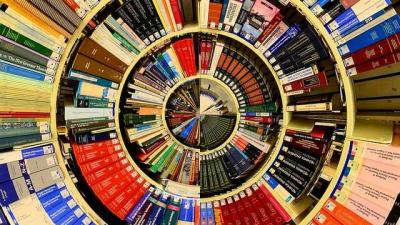

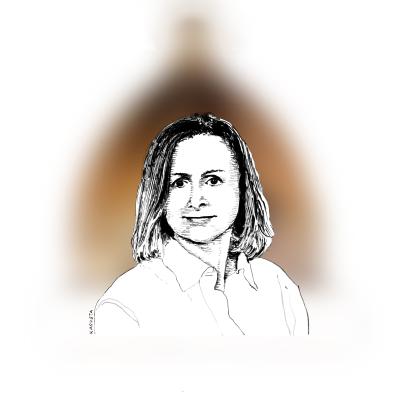

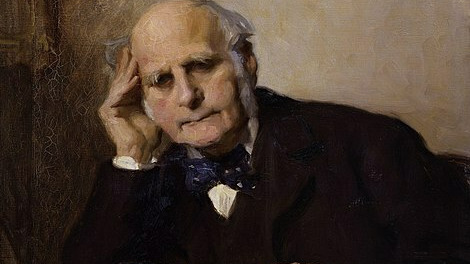
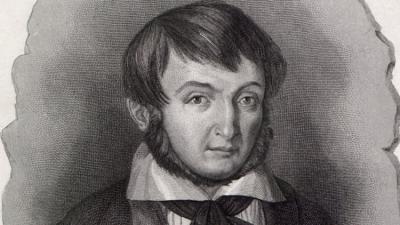




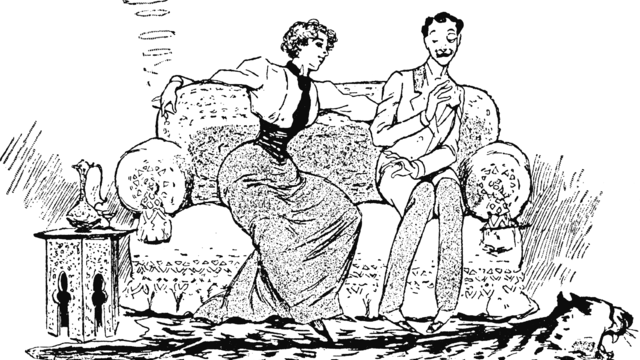
Comments (0)